WSU mothers balance school, family amid pandemic
Finding child care proved difficult for some mothers; outside support important for success
A.J. Kappes, first-year master’s in business student and WSU veterinarian, hopes her pursuit of higher education will teach her child to broaden his expectations in life.
March 31, 2021
For WSU student mothers, balancing work, school and family is a way of life. However, with additional strains placed upon families and students because of COVID-19, some student mothers are having a hard time dealing with the new normal.

Nuzhat Yamin, electrical engineering doctoral student, said it is hard to balance work while giving her daughter the attention she needs. Yamin started her doctoral program when her daughter was 10 months old. She is now 3.
“I still get mom guilt that I am working, keeping her in daycare,” she said.
Yamin’s husband is also a student at WSU. Yamin said both she and her husband work about 20 hours a week as research assistants. They divide their work to spend time with their daughter.
In addition to her position as a research assistant, Yamin also has schoolwork to complete. In total, Yamin said she spends about eight hours a day working.
Having an understanding supervisor in the doctoral program is helpful. Some supervisors are less understanding if they do not have families of their own, said Johannetsy Avillan, fifth-year graduate student studying immunology and infectious diseases.
Avillan has two biological children and three foster children. Because of COVID-19, Avillan said she does not work as many hours in the lab as she used to.
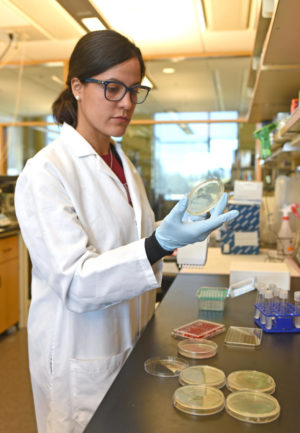
At the start of the pandemic, Avillan said she needed to figure out who could watch her children. Thankfully, their child care center opened up so she could go into the lab.
Typically, Avillan works a minimum of 10 hours a day. This adds up to over 60 hours a week. Balancing the high workload is challenging, especially since she has an 11-month-old child, she said.
“It is hard and there are days that I just go home and cry,” she said. “There are days that I am just happy that I’m very close to the end.”
Shanda Stinebaugh, second-year graduate art student, said she and her husband have a blended family with a combined seven children. There is an age range of 10-18 of her children living at home. She said they are doing a mix of online and hybrid schooling.
Graduate school is fully online and takes about 40 hours a week, including Stinebaugh’s job as a teaching assistant.
“You try to close off in another room, but you’re also at home, and so it’s like, oh, I have to go make dinner now,” she said. “It’s really interrupted.”
Separating home life with work is difficult, she said. Working at home instead of in the art studio impacts her ability to focus.
Despite the challenges, there are some positives from working at home. Since Stinebaugh is no longer commuting, she is more available to her children, she said.
Learning how to work together in an online environment is imperative for Stinebaugh’s family. Respecting others’ privacy and balancing time are also important.
A.J. Kappes, first-year master’s in business student and WSU veterinarian, has one 5-year-old child. She spends about 60 hours per week working.
She tries to get as much done as possible from 9 a.m. to 5 p.m., so she cannot take an hour-long lunch break, Kappes said. When she arrives home, she spends the first couple hours with her son before studying.
Kappes had her son while she was an undergraduate student. As far as university resources go for student mothers, one issue Kappes had was finding accessible places to breastfeed, she said.
“My issue was having a place to, you know, pump while I was at work that didn’t involve a dirty stall and a bathroom,” she said. “So that was one resource I noticed a deficit in.”
Since she was a mother, Kappes never got the full weekend to study, unlike some of her peers. Kappes said she is grateful for her husband and the support he provides.
Through pursuing higher education, Kappes said she hopes her child learns to broaden his expectations in life.
“I grew up very poor and so I was very limited in what I thought my potential was,” she said. “I think by me going to school and showing him that a woman can be strong and a woman can be, you know, hardworking and successful.”
Kappes said it is important for women to do what is natural for them, whether that includes advanced degrees or not.
“If it’s natural for you to pursue advanced degrees and you can still maintain your family and your relationships, do it,” she said. “Don’t listen to everybody else.”
Earning a doctorate gives Yamin the knowledge for industry positions and enables her to get established in her field, she said.
Last March, her daughter’s daycare was closed because of COVID-19. Yamin said most of her work was online and although she was home, she had to compromise her time working because her daughter was also at home all day.
To adjust to the new routine, Yamin said she spent the day with her daughter and worked during the night. She got only four to six hours of sleep a night.
“My sleep was totally compromised,” she said. “I found my everyday routine to be totally disturbed.”
Daycare started back up in August, and Yamin said she hopes her daughter will be proud of her someday when she completes her doctoral program.
In order to complete all her responsibilities, time management is key. It is hard to accomplish everything in 24 hours, she said.
“Right now I am struggling a lot,” she said, “managing my time to take care of my daughter and then studying and then all the housework also and making food and everything.”
Yamin said the daycare and her husband are her biggest source of support.
“Although it is hard for me to manage everything all together, I’m very focused and hopeful of getting my Ph.D. in time,” she said.
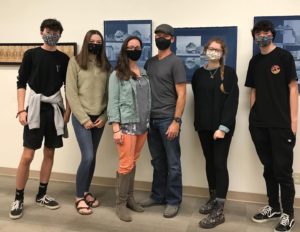
Avillan said she thinks her graduation date will be pushed because of child care obstacles. Since her experiments were delayed, she is now looking at a July graduation date instead of a May graduation.
Stinebaugh had her first child at 20 years old and started college at 33 years old. Having older kids is critical to her success, she said.
“Really the kids came first,” she said. “I think I learned from them, from being a mother and how to balance all that stuff, I learned how to be a good student.”
Stinebaugh said she typically wakes up around 7 a.m. She tries to have some downtime on weekends to relax.
Being a mom means putting other people’s needs ahead of her own, she said. Self-care is critical to taking care of her family.
“If I don’t take care of myself, then I can’t take care of them,” she said.
Stinebaugh said she has a fairly flexible schedule, which gives her support. Asking for help and prioritizing is vital.
“My daughter will now run to the grocery store for me, or my husband will pick up the kids,” she said. “It’s really taught me to let go and that’s been a really important thing.”


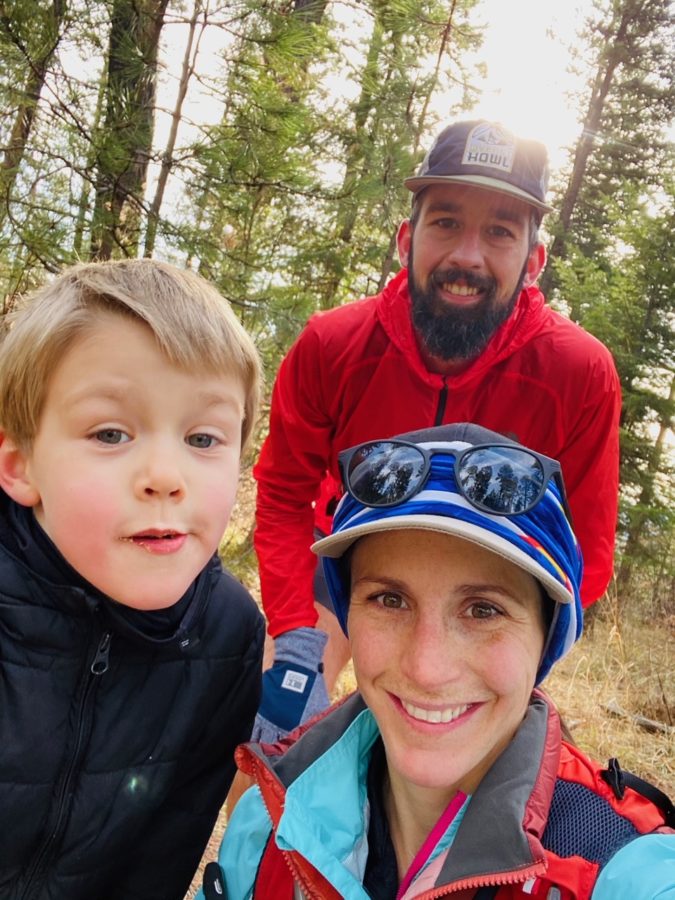










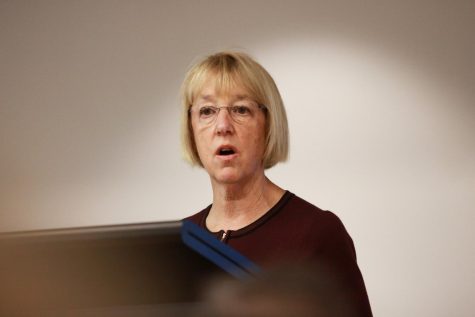
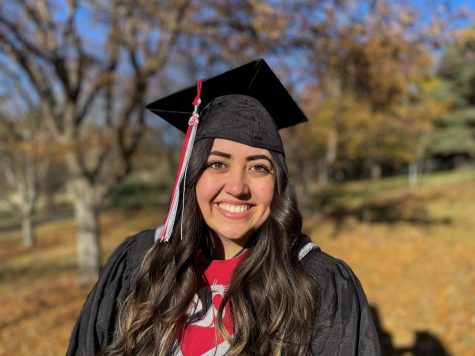
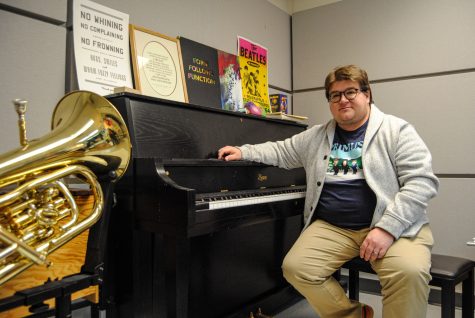
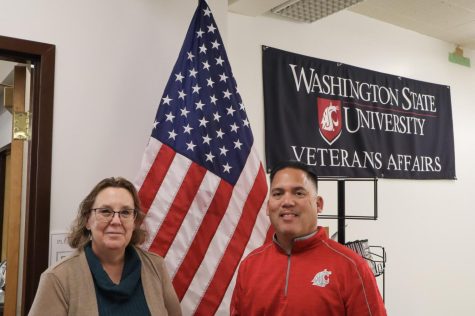
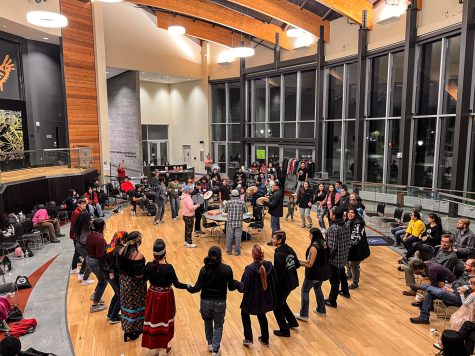
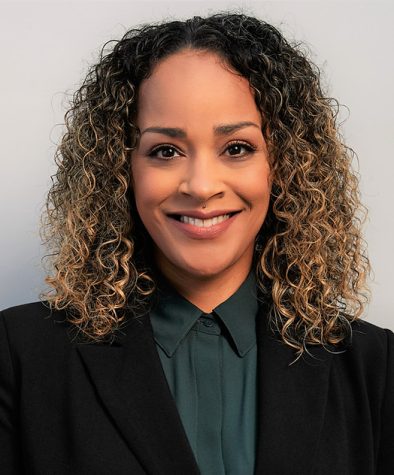



Sally Davis • Apr 2, 2021 at 3:37 pm
I love this article. My admiration for the mothers who have managed the Pandemic, children, and working is boundless. Very enlightening article!